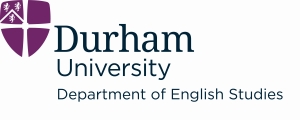Vocal Flesh: the sinthomatic return of the repressed in M. NourbeSe Philip’s Zong!
Keywords:
M. NourbeSe Philip, psychoanalysis, slave trade, memory, Jacques LacanAbstract
NourbeSe Philip’s 2008 book length poem Zong! attempts to tell a story that cannot be told. It is based upon the massacre of approximately 150 enslaved Africans being imprisoned on the Dutch-British slave ship ‘Zong’ in 1781, an event that we can only access through a two-page legal judgement certifying a claim for insurance for lost ‘cargo’ made in a London court in 1783. That our only written records are told from the standpoint of the colonist and slave trader appears to violently foreclose the possibility of telling the story of the Zong without repeating the erasure of enslaved people as subjects. In this paper I argue that a Lacanian psychoanalytic approach, read alongside the work of Hortense Spillers can help us to better appreciate how Philip deals with this problem. I show how the later work of Jacques Lacan on James Joyce’s Finnegans Wake can be put to work to help us understand the poet’s embodied approach to writing. Philip takes the silences and repressions of the legal text into her body by immersing herself in it and allows for these gaps to become felt for her as corporeal symptoms. She then skilfully channels these symptoms back onto the page in the form of her poems, allowing those murdered on the Zong to have voice through her own body and the body of the reader in a process that Lacan would label the deployment of a sinthome. Finally, I argue that this writing process has political import, because in causing meaning to appear in an embodied form, Philip causes us to feel that it is a fragile and fleshy body that underpins the appearance of seemingly infallible colonial symbolic and legal structuresDownloads
Download data is not yet available.
Downloads
Published
2025-05-30
Issue
Section
Articles
License
Copyright (c) 2025 Pip Hudd

This work is licensed under a Creative Commons Attribution-NonCommercial-ShareAlike 4.0 International License.
Authors who publish with this journal agree to the following terms:
- Authors retain copyright and grant the journal right of first publication with the work simultaneously licensed under a Creative Commons Attribution-NonCommercial-ShareAlike 4.0 licence that allows others to share the work with an acknowledgement of the work's authorship and initial publication in this journal.
- Authors are able to enter into separate, additional contractual arrangements for the non-exclusive distribution of the journal's published version of the work (e.g., post it to an institutional repository or publish it in a book), with an acknowledgement of its initial publication in this journal.
- Authors are permitted and encouraged to post their work online (e.g., in institutional repositories or on their website) prior to and during the submission process, as it can lead to productive exchanges, as well as earlier and greater citation of published work. Authors may deposit the Submitted version; Accepted version (Author Accepted Manuscript); or Published version (Version of Record) in an institutional repository of the author's choice.
How to Cite
Vocal Flesh: the sinthomatic return of the repressed in M. NourbeSe Philip’s Zong!. (2025). Postgraduate English: A Journal and Forum for Postgraduates in English, 46. https://postgradenglishjournal.awh.durham.ac.uk/ojs/index.php/pgenglish/article/view/383

